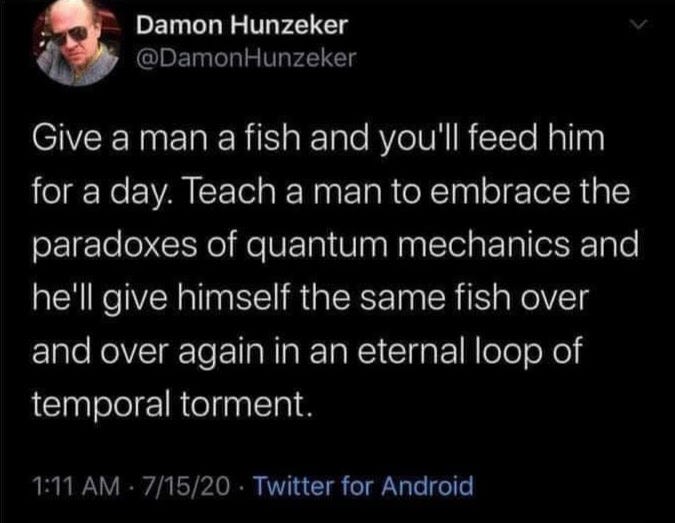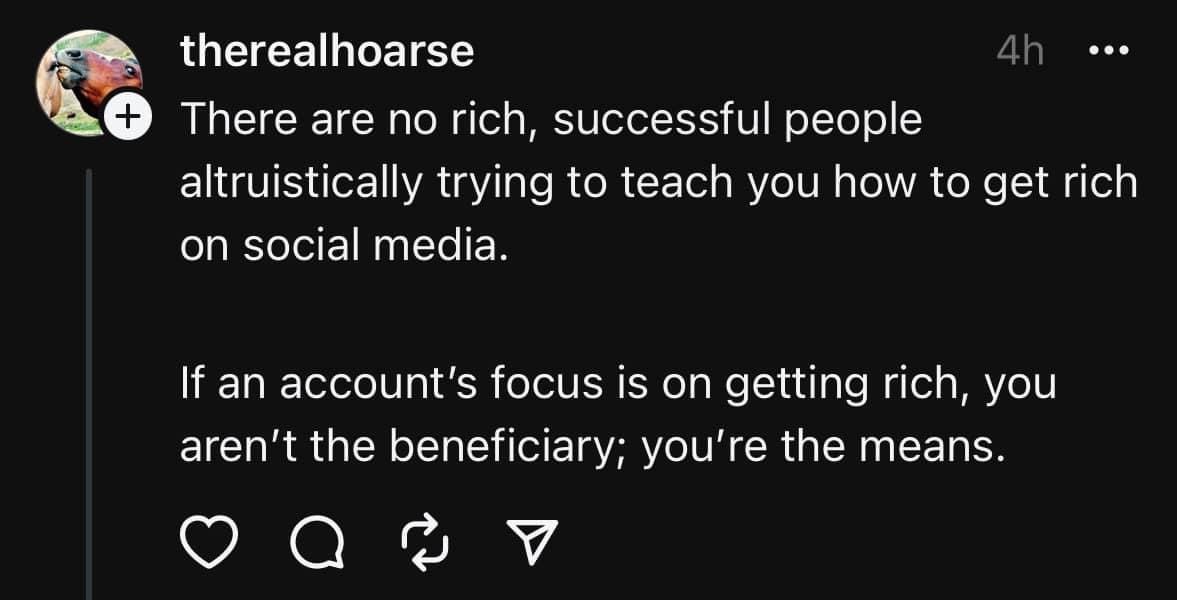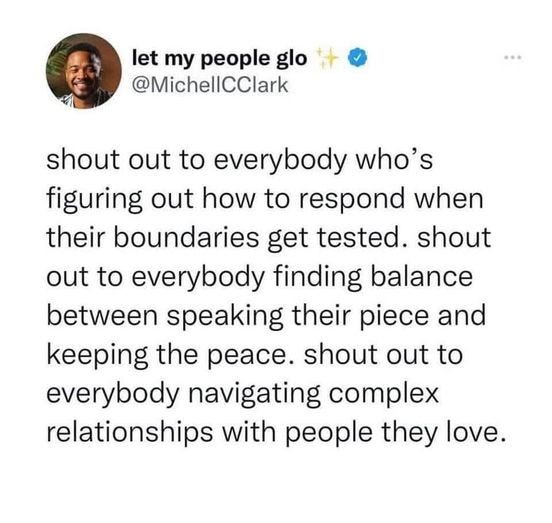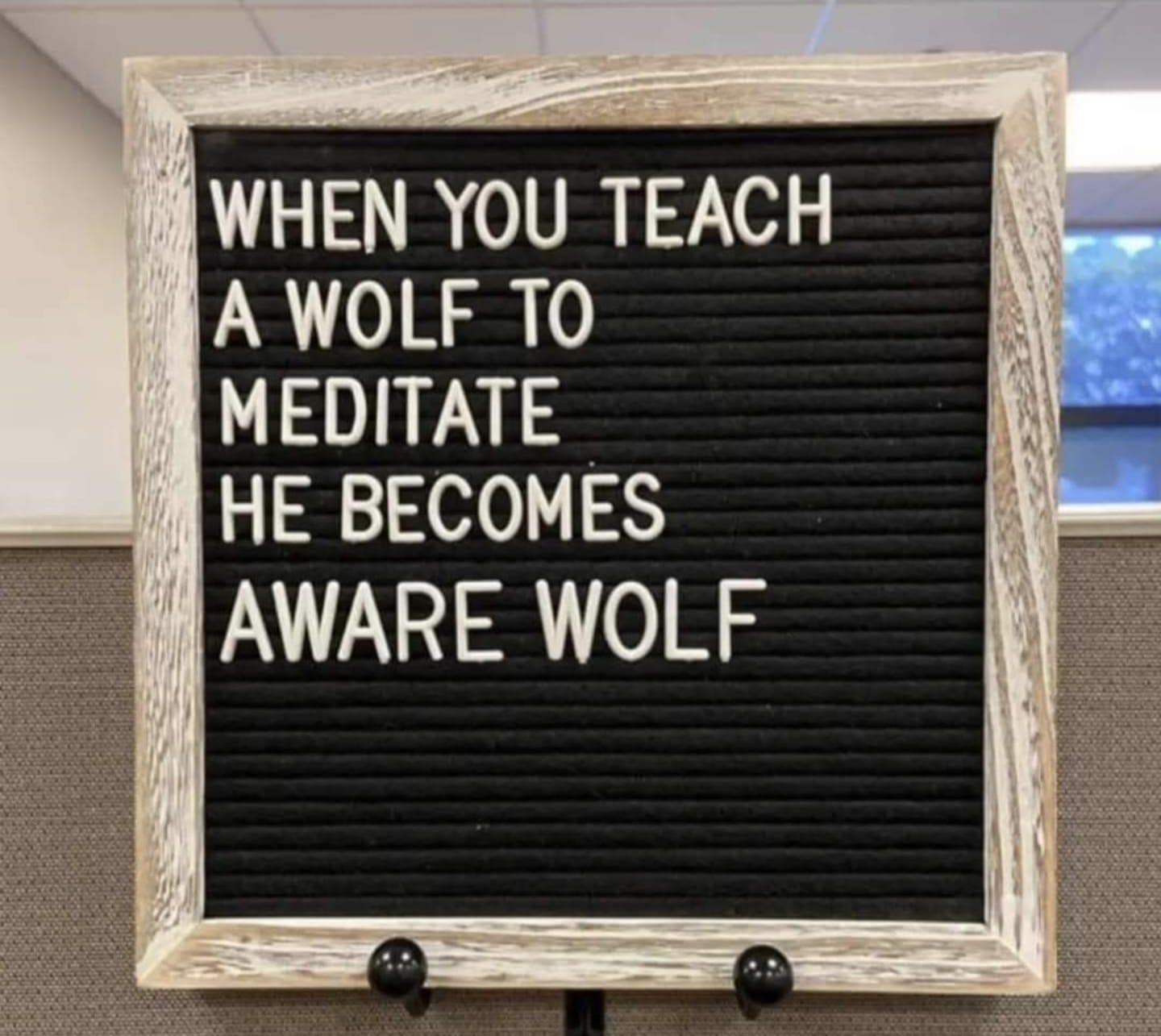Real talk: according to Notion, I’ve been writing this article for over two years.
It’s been mostly finished for almost all of those two years.
But I always delay publication, because…well, this one is spicy.
I don’t do hot takes. I don’t like them. (For me—IDGAF what you do.)
So I thought, “well, I’ll just hold on to it for a little while. I’ll revisit it one day when it is less of a hot take.”
And reader, that day never arrived.
What did arrive were plenty of moments where I revised the piece because it was relevant. Maybe added in a new rule. But less spicy? Never arrived.
It’s not today, either.
In fact, there is no good day for me to publish this article, so I’m just going to do it anyway.
However, because it’s a little tender, I’m going to ask in advance that if you find it meaningful, I would appreciate it if you shared it with someone else who might also benefit from knowing these things.
One of the primary goals of the Network is to make information as accessible as possible. So written content like this is always free, although you can buy me a taco if you are so inclined.
With all of that out of the way…let us begin.
Let’s start by defining our terminology. It’s really important to me that we’re having the same conversation, and that means we start by making sure we’re clear on what we mean.
So, definitions. (I always use the Oxford English Dictionary.)
Truth and fact are a little murky.
Language sucks, y’all, and we could stand to be more precise.
Truth: the quality or state of being true; that which is true or in accordance with fact or reality; a fact or belief that is accepted as true.
WTF.
Fact is equally enraging.
Fact: a thing that is known or proved to be true; information used as evidence or as part of a report or news article; the truth about events as opposed to interpretation.
This bullshit is why I’m not a lawyer, but we’ll get to that.
At this point, y’all know true is gonna be equally ridiculous, but just for shits and giggles.
True: in accordance with fact or reality; accurate or exact.
So, basically, truth and facts are things we think we’re sure about, but definitely not an interpretation or belief.
Great. 🙄
Sometimes, y’all, it’s easy to see how the conspiracy people go sideways. Being informed is fucking hard, and everyone out there is just presenting their soundbites of insanity. Parsing the signal from the noise is a battle you gotta face every fucking day, and it’s exhausting.
This is a thing highly educated or intelligent people often overlook, because the fallacy of knowledge states that we (and I definitely include myself in this judgment) tend to assume that everyone else knows what we know.
But because fact and truth are highly variable, in both definition and…well, truth, or facts…sometimes we need a little help interpreting.
What we do then, is choose our gurus.
This is also a word that has been deeply appropriated, so I will define it here.
Guru: (in Hinduism and Buddhism) a spiritual teacher, especially one who imparts initiation.
This word is somewhat regional, and has different layers of significance the closer one gets to the birthplace of Sanskrit, but it definitely doesn’t encapsulate the likes of almost everyone on the internet calling themselves one (or Not Your Guru, as the case may be). My friend Anuradha recommends the phrase “celebrity entrepreneurs,” and it’s what we’ll be using in the future.
But the upshot is this. We choose our teachers.
Okay then.
If you want to know something that you yourself do not understand, you get a teacher. There are many ways to acquire knowledge on the internet, because information is free.
You can watch a YouTube video, or listen to a podcast, or read an article, or join a membership, perhaps.
But in most cases, these sources are only as accurate as their sources, which...do they have them? Do you know?
Additionally, if you’re going to be pursuing any information in DEPTH, then you need a teacher. A specific one.
Maybe it’s just the natural skeptic in me. Maybe it’s my deep distrust of authority figures, born of a lifetime of abuse. Who knows? (Spoiler alert: it’s the ‘tism y’all, but I wasn’t diagnosed yet when I wrote this.)
And I’ll tell you: when I consider trusting someone as a teacher, especially if that involves giving someone my money, I do my due diligence first.
If you’re new to my work, you may not know that I don’t participate in a lot of mudslinging. I’ve written about that in more depth elsewhere, but if you’re hoping for a lot of salacious name-dropping, you’re not gonna find it here.
I don’t care if you’ve been the subject of a recent documentary series or personal internet takedown (and trust me, I know all the names—the ops people always do), I’m not interested in talking trash.
I’m interested in the lessons we learn.
In general, I have found that we’re quick to react when we’re dropping names. But there’s no retention there. We don’t take anything of substance away. Therefore, I keep my commentary as apolitical and judgment-free as I possibly can. I’m not perfect, but it is a value that I hold.
This means that the following list is based on my personal values, about that which I hold to be true, founded on a lifetime of hypervigilance, and over a decade of business in online spaces. (Almost 15 years now. I’m old in internet years.)
You can agree or not. I really don’t care.
I’m offering up these judgments with the knowledge that not everyone knows what I know, or has been where I’ve been. And when it comes to creating boundaries, sometimes you don’t know what you don’t know. These are mine.
Take them or leave them.
1. Don’t take legal advice from a lawyer who hasn’t passed the bar in the state/province/country in which you live or operate your business.
Most good attorneys will be upfront about this, but a whole lot more are out there looking to make money on their coaching programs while talking repeatedly about their legal careers or training.
Additionally, the most questionable among them will use their legal knowledge as a shield, to protect them from negative reviews or lawsuits, because people are terrified about that non-disparagement clause they signed. Fun fact: that’s almost NEVER enforceable. And if you live in the United States, it’s vitally important that your attorney knows state and local laws, because you better believe that information can be worth millions of dollars.
Legal advice shouldn’t come in a box.
(Addendum 1.1: the same is probably true for your accountant. Sorry.)
2. Don’t take spiritual advice from someone who hasn’t done their own work.
I’m not talking about certification here, but I’m not NOT talking about it, either.
Not everything can be certified. Most things probably shouldn’t, to be honest. We regulate a bunch of shit that shouldn’t be regulated, and do significant harm through the exclusion of traditions of lineage in favor of certification. However, everyone requires a board of advisers, and if you are not constantly learning, being mentored, and adding to the body of your work, you risk becoming an echo chamber of one.
This is particularly dangerous if you also find yourself with a large following or fan base, because the parasocial relationship is by its very nature one of trust, even if that trust isn’t earned.
Which leads us right into:
3. Don’t take advice from someone without a documentable lineage.
Who are the teacher's teachers?
Many things can be self-taught. Not everyone has the privilege of learning from their teachers in person. But lineage can be defined in the books they’ve read, the paths they’ve walked, or the signs of measurable growth over time through their own body of work.
What’s key is a network of identifiable resources that are visible and separate entities.
4. Get to as pure a source of information as possible.
Listen, it’s fine if you want to learn traditions that are not your own for yourself.
However. There’s a fine line between appreciation and appropriation. If you are teaching from traditions that you aren’t born into, then your skills better be beyond reproach, and again, I better be able to trace your lineage to folks who DO belong to that tradition.
It’s not gatekeeping to want your information to be as close to the original source as possible.
5. Don’t take advice from someone whose positions wildly fluctuate over time.
There’s nothing wrong with changing your mind.
In fact, I consider it one of the highest forms of personal growth, to be able to change your mind about a position that was previously very intensely held. That means that our opinions are at the very least informed by some outside influence (even if it’s not a good one). But if that opinion swings from one extreme to another, without a clear process of how we got from there to here, there might be a problem in the parsing of the data.
And if that person also expects you to change YOUR viewpoints with them, then that’s a problem.
6. Determine your minimum viable lineage ahead of time.
Obviously, my standards are highly variable here, but some fields of study do require more rigorous standards than others.
My therapist has a whole wall of certifications. I appreciate that. And I’m certainly not taking advice regarding virology or epidemiology from just anyone, and in this case, where that knowledge was acquired matters almost as much as the course of study.
Determine what your standards are ahead of time, so that you aren’t influenced by the cult of personality that we are increasingly subjected to.
7. Have some filters.
I think this one may be the hardest, because it requires deep vulnerability.
But everyone needs a PRIVATE place where they can ask, “does this sound right to you?” Whether that’s your therapist, mastermind group, the group chat, or a trusted bestie, who are the people that you trust to help you filter your information?
At present, I have a personal board of advisers made up of five people, who I meet with at least once a week (two are compensated for this time in some way—the others see me in a similar advisory role). These people have wildly different backgrounds, life experiences, and personal histories. What they DO share is a willingness to ask me hard questions, sit with me while I find the answers, and ignore me when I tell them to fuck off. Which I do pretty regularly.
8. Before you make any decisions, have a snack and a nap first.
I never make any decision (especially financial ones), without sleeping on it first. Almost everything looks different after a good sleep and some protein. That’s because urgency is a lie.
Don’t ever let anyone rush you into a decision you’re not sure about. You’ll probably regret it.
And look—don’t take my word for it.
Take this list to YOUR filters.
Ask questions.
Be skeptical, but learn to listen.
Wishing you more discernment, always.







